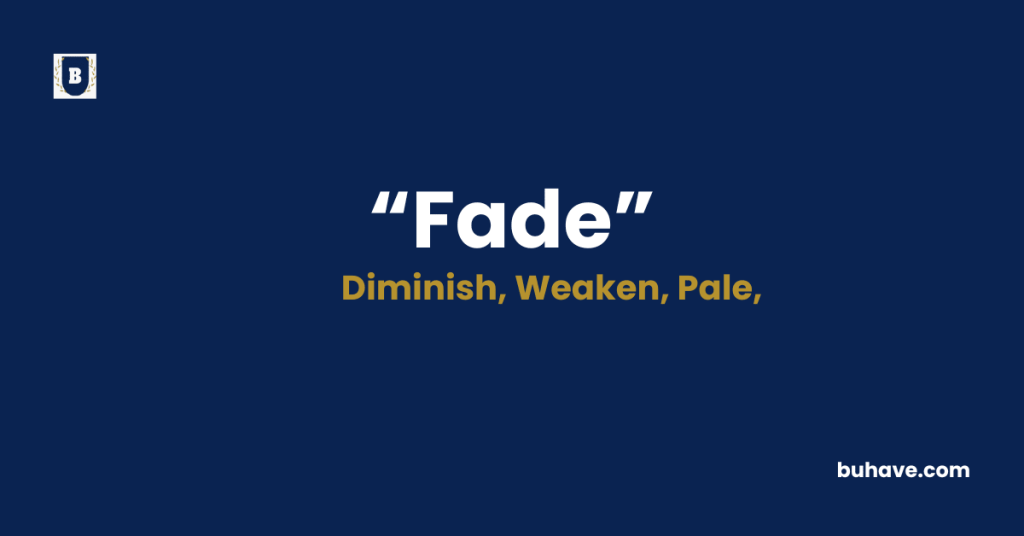The word ‘Fade’ (Noun) refers to the gradual loss of brightness, color, strength, or clarity. It can describe both physical and emotional diminishment over time. In this guide, you’ll explore the full meaning, definition, examples, synonyms, antonyms, and the etymological roots of ‘Fade’.
Fade Explained in Depth
A complete and detailed guide to the word ‘Fade’ including meaning, definition, examples, etymology, synonyms, and antonyms.
Meanings of Fade
‘Fade’ means to slowly lose intensity, brightness, or visibility. It can apply to colors, sounds, emotions, memories, and physical strength. It’s often used metaphorically to describe things that diminish or vanish over time.
Definition
As a verb, “fade” means to gradually become less distinct or to disappear. As a noun, it refers to the process or effect of fading. It can be used in many contexts—from colors fading in sunlight to memories fading with age.
Etymology
The word “fade” comes from Middle English faden, likely from Old French fader, which means “to vanish or die.” Its Latin root is fatuus, meaning foolish or insipid, suggesting weakness or lack of force.
Example Sentences
- The colors of the painting began to fade after years in the sun.
- Her smile faded as she heard the disappointing news.
- The music faded into silence at the end of the ceremony.
- With time, his anger faded into forgiveness.
Fade Synonyms
- Dim
- Disappear
- Dissolve
- Wither
- Vanish
- Decline
- Subside
- Blur
- Weaken
- Evaporate
Fade Antonyms
- Brighten
- Appear
- Strengthen
- Intensify
- Grow
- Enhance
- Sharpen
- Revive
- Illuminate
- Amplify
FAQs about Fade
Here are some frequently asked questions (FAQs) about the word “Fade”
1. Can “fade” refer to emotions?
Yes. Emotions such as love, anger, or excitement can fade over time as intensity diminishes.
2. Is “fade” only used negatively?
Not always. While often used to describe loss, it can also describe gentle transitions, like music fading out peacefully.
3. Is “fade” a transitive or intransitive verb?
It is primarily intransitive (e.g., “The light faded”), but can be used transitively in certain contexts (e.g., “He faded the music out”).
4. How is “fade” used in fashion or haircuts?
In fashion, it refers to color fading in fabrics. In haircuts, a “fade” is a style where hair gradually shortens from top to bottom.
5. What’s the noun form of “fade”?
“Fade” as a noun refers to the process of fading or a gradual decrease (e.g., “a slow fade to black”).

















